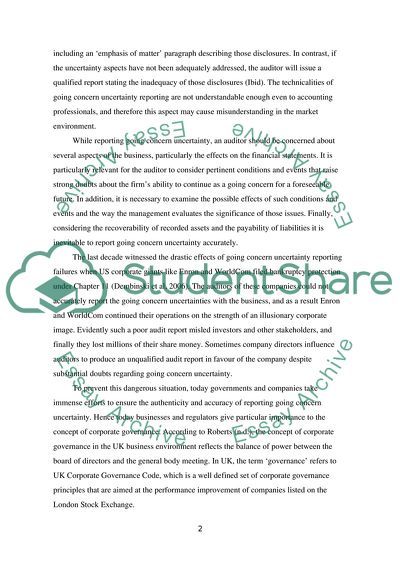Cite this document
(Going Concern Reporting Failure - A Conceptual Framework Essay, n.d.)
Going Concern Reporting Failure - A Conceptual Framework Essay. https://studentshare.org/finance-accounting/1819241-going-concern-reporting-failure-a-conceptual-framework
Going Concern Reporting Failure - A Conceptual Framework Essay. https://studentshare.org/finance-accounting/1819241-going-concern-reporting-failure-a-conceptual-framework
(Going Concern Reporting Failure - A Conceptual Framework Essay)
Going Concern Reporting Failure - A Conceptual Framework Essay. https://studentshare.org/finance-accounting/1819241-going-concern-reporting-failure-a-conceptual-framework.
Going Concern Reporting Failure - A Conceptual Framework Essay. https://studentshare.org/finance-accounting/1819241-going-concern-reporting-failure-a-conceptual-framework.
“Going Concern Reporting Failure - A Conceptual Framework Essay”. https://studentshare.org/finance-accounting/1819241-going-concern-reporting-failure-a-conceptual-framework.


